Israeli fire kills two Palestinians in Gaza amid impasse over ceasefire
4 min readIsraeli fire killed at least two people in Rafah and injured three others in Khan Younis in the south of Gaza, raising fears among Palestinians that the ceasefire could collapse altogether after Israel imposed a total blockade on the shattered enclave.
The first phase of a ceasefire between Israel and Palestinian militant group Hamas that began in January ended over the weekend with no agreement on what will happen next.
Hamas says an agreed second phase must now begin, leading to a permanent Israeli withdrawal and an end to the war.
Israel has instead offered a temporary extension into April, with Hamas to release more hostages in return for Palestinian detainees, without immediate talks on Gaza’s future.
Also, read this
Israel blocks aid into Gaza as ceasefire standoff escalates
Israeli military admits failure to prevent Hamas’s deadly October 7 attack
Israel sends negotiators to Cairo to extend phase-one of Gaza ceasefire
Later on Monday, Hamas official Osama Hamdan said Israel’s demand to extend the first phase of the ceasefire was pushing things back to “square zero”.
“The mediators and guarantors bear full responsibility for preventing (Israeli Prime Minister) Netanyahu from sabotaging all efforts made to reach the agreement and for protecting the agreement from collapsing,” said Hamdan in a news conference.
Two Israeli government officials said mediators had asked Israel for a few more days to resolve the standoff.
Israel raised the stakes on Sunday by imposing a total blockade on all supplies, including food and fuel, to sustain the 2.3 million Gazans living among the ruins after the 15-month conflict.
Hundreds of lorries carrying supplies were backed up in Egypt and denied permission to enter.
Gaza residents said shops had been swiftly emptied of all supplies, and the price of a sack of flour had more than doubled overnight.
“Where will our food come from?” said Salah al-Hajj Hassan, a resident in Jabalia, on Gaza’s northern edge where families have returned to destroyed homes to live in the rubble.
“We are dying, and we don’t want war or the alarm bells of displacement or the alarm bells of starving our children.”
Tanks firing
Residents said Israeli tanks stationed near the eastern and southern borders of Gaza intensified gunfire and shelling into the outskirts throughout the night.
A Palestinian official with a group allied to Hamas told Reuters a state of alert had been declared among fighters.
At least two people were killed by Israeli drone fire in Rafah, and three people were wounded by a helicopter that fired on Khan Younis, medics said.
In a statement, the Israeli military said its forces fired at a motorboat in the coastal area of Khan Younis, violating security restrictions in the area and posing a threat.
The military said in another incident in southern Gaza, its forces identified two suspects who were moving towards them and posing a threat. Israeli forces “fired at the suspects to eliminate the threat and identified casualties,” it said.
Netanyahu’s office said on Sunday it had adopted a proposal by U.S. President Donald Trump’s envoy, Steve Witkoff, for a temporary ceasefire for the Muslim holy month of Ramadan and Jewish feast of Passover, ending around April 20.
The truce would be conditional on Hamas releasing half of the remaining living and dead hostages on the first day, with the remainder released at the conclusion if an agreement is reached on a permanent ceasefire.
Hamas says it is committed to the originally agreed ceasefire that had been scheduled to move into a second phase, with negotiations aimed at a permanent end to the war, and hostages could be released only under that plan.
Food prices surge
The Hamas-run Gaza interior ministry called on residents to provide information about merchants raising food prices in the wake of the new blockade.
Tamer al-Burai, a Gaza businessman, said that with shops suddenly empty, the price of a sack of flour had risen to 100 shekels ($28) from 40 shekels. Prices for cooking oil, fuel, and vegetables had also surged.
“It is catastrophic, and things might become worse if the ceasefire isn’t resumed or there is no intervention by the local authorities against greedy merchants,” he told Reuters via a chat app.
Salama Marouf, head of the Gaza government media office, urged Gazans not to panic, saying there was enough food in markets for at least two weeks. The economy ministry had initiated an effort to compel merchants not to increase prices.
For the latest news, follow us on Twitter @Aaj_Urdu. We are also on Facebook, Instagram and YouTube.






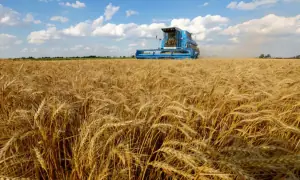








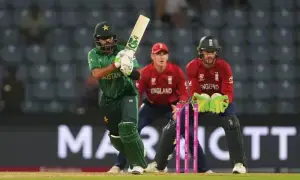
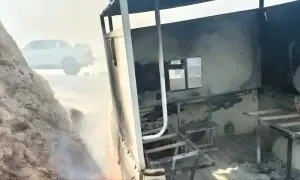
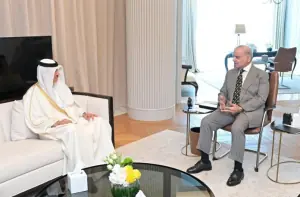
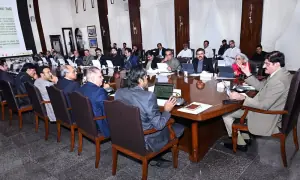
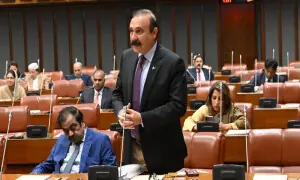
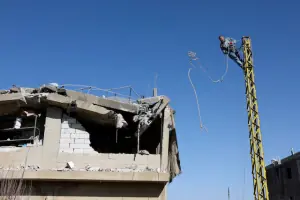

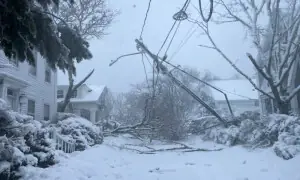
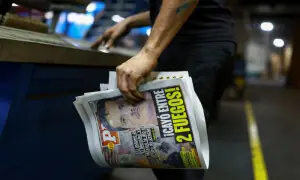
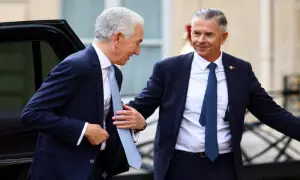
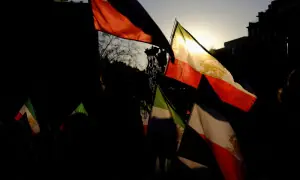
Comments are closed on this story.